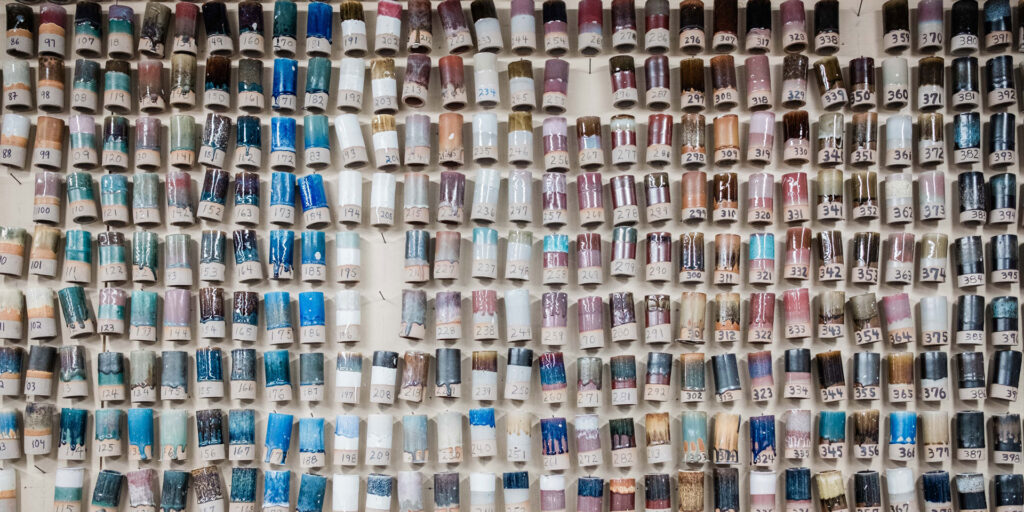As a steward of the Pittsburgh learning ecosystem, Remake Learning convenes and coordinates stakeholders—from individual educators to major institutions—in order to foster collaborative innovation that has the potential to transform learning in our region.
For years, we’ve organized Working Groups as a primary way to bring together network members to explore topics, practices, or issues of shared interest. Together, working group members dive deeply into their focus area to enhance their understanding of the subject, exchange knowledge and experiences with peers, and develop a shared vision for how their focus area can help shape the future of teaching and learning in the greater Pittsburgh region.
For example, when the maker movement swept the region in the early 2010s, the Maker Learning Collaborative brought together researchers at local universities, tech industry partners designing tools used for making, community-based maker spaces, and teachers actively transforming spaces in schools into thriving maker spaces. Over the years, the group contributed important guidance and direction to the regional maker movement, helping to align maker learning with workforce development opportunities, identify gaps and opportunities for more equitable maker learning experiences, and build partnerships with the global maker learning community.
Working Groups are designed to be responsive: to emerge as interests arise, to evolve as focus shifts, and to sunset when their work is complete. As we begin a new school year, we’re rolling out changes to our Working Groups.
Sunsetting CSforPGH
CSforPGH, a working group that supported the creation of computer science opportunities across the region, is winding down. Originally organized to promote efforts aimed at expanding access and equity in computer science education, the working group succeeded in shifting mindsets about what computer science learning is and who it is for.
- The CSforPGH Quick Start Guide introduced small steps educators can take to expand opportunities for computer science learning in school.
- The #CSforInclusion series shared intentional acts of inclusion that can help us redefine the look of Silicon Valley.
- CSforAll commitments made by dozens of organizations in western Pennsylvania set the stage for further expansion of equitable CS learning opportunities in the region for years to come.
As computer science, computational thinking, and digital literacy became more integral across all STEM subjects, CSforPGH’s members and activities began to overlap with the broader Pittsburgh Regional STE(A)M Ecosystem working group. Looking ahead, members can expect new opportunities to explore rapidly emerging issues like AI.
Pausing the Maker Learning Collaborative
The Maker Learning Collaborative, the network’s longest running working group, will take a pause.
As a regional cohort of artists, engineers, makers, and educators, the collaborative has worked together to strengthen existing maker learning resources and connect making to economic opportunity. Most recently, the Maker Learning Collaborative was organized in partnership with Digital Promise.
Nick Schiner, Director of Peer-to-Peer Professional Learning at Digital Promise, led the working group through an extensive and inclusive process to assess the state of maker learning in southwestern Pennsylvania. Along the way, the Collaborative established four affinity groups focusing on different corners of the maker movement: K12, Higher Education, Out of School Time, and Industry. Over the course of six months, the affinity groups charted a course forward to develop the future of maker learning in the region. The result was workshopped at a capstone event on the Future of Maker Learning.
As the act of making evolves—with growing interest in a wide range of making from agriculture to advanced manufacturing—we have decided to take some time to explore the best way to help this working group evolve into the future.
What’s Next for Working Groups
Working Groups remain a core strategy of Remake Learning and there is tremendous energy around our active working groups.
This past spring, we launched a new working group focused on civic learning in partnership with the History Co:Lab. The Civic Learning Ecosystem is uniting a diverse cross-section of individuals and organizations committed to redefining civic education. In June, the Civic Learning Ecosystem organized a youth design day that challenged young people to answer the question “What would it take to create a map that ensures every young person in Pittsburgh can find the opportunities they need to feel powerful and seen?” You can see the outputs of that meeting in this report on Mapping Civic Learning Across Pittsburgh.
Meanwhile, the Personalized Learning Working Group and Pittsburgh Regional STE(A)M Ecosystem continue to gather network members to explore issues and opportunities related to their focus areas.
All three working groups will get a boost in 2025 as the next round of Moonshot grants will catalyze bold ideas for personalized learning, STEAM learning, and civics learning. Working group members will help define funding priorities and $1 million in grants will be distributed — the largest single grant opportunity in Remake Learning’s history, thanks to the Grable Foundation.
Stay tuned for more details and be sure to sign up for the Remake Learning newsletter to be notified when the Working Group Moonshot grant opportunity opens!
